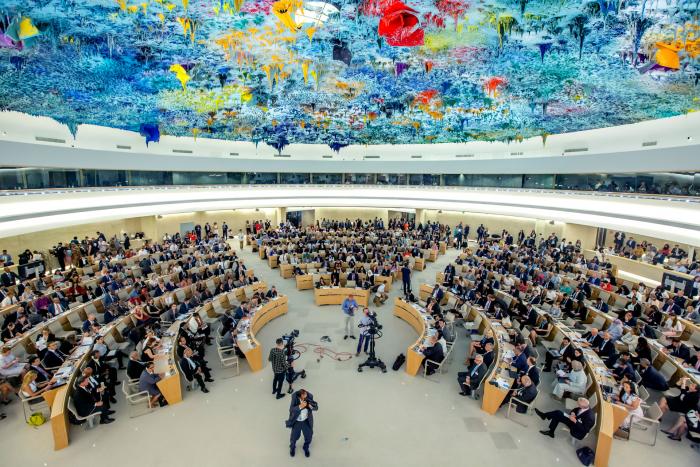NEW DELHI, Mar 23: India on Tuesday abstained from a crucial vote on Sri Lanka’s rights record but the UN Human Rights Council in Geneva carried the resolution with 22 member states of the 47-member Council voting in its favour.
The resolution on “Promoting Reconciliation, accountability and human rights in Sri Lanka” was opposed by 11 members including China and Pakistan, while besides India 13 other countries abstained.
Both, the Government of Sri Lanka and the Tamil National Alliance (TNA), the main grouping representing war-affected Tamils of the island’s north and east, that sought the exact opposite outcomes on the passage of the resolution, had earlier expressed hope about obtaining India’s support to their respective calls.
The adoption of the resolution was a setback for Sri Lanka which made determined efforts to garner international support ahead of the voting. Sri Lanka described the draft resolution as “unwarranted, unjustified and in violations of the relevant articles of the United Nations’ Charter…”
In a pre-vote statement, the Indian delegation said India’s approach to the question of human rights in Sri Lanka is guided by the “two fundamental considerations” of support to the Tamils of Sri Lanka for equality, justice, dignity and peace, and ensuring the unity, stability and territorial integrity of Sri Lanka. “We have always believed that these two goals are mutually supportive and Sri Lanka’s progress is best assured by simultaneously addressing both objectives,” India said, reiterating its earlier position.
India said it supports the call by the international community for the Government of Sri Lanka to fulfill its commitments on the devolution of political authority, including through the early holding of elections for Provincial Councils and to ensure that all Provincial Councils are able to operate effectively, in accordance with the 13th amendment to the Sri Lankan Constitution.
India had urged the government of Sri Lanka to carry forward some process of reconciliation, address the aspirations of Tamil community and continue to engage constructively with the international community to ensure that the fundamental freedoms and human rights of all its citizens are fully protected.
Sri Lanka was earlier defeated at three consecutive resolutions at the UN rights body when Gotabaya’s elder brother and incumbent Prime Minister Mahinda Rajapaksa was the country’s president between 2012 and 2014.
The government of Gotabaya Rajapaksa had officially withdrawn from co-sponsoring the previous resolution undertaken by the previous government. It had called for an international investigation into alleged war crimes committed by both the government troops and the Liberation Tigers of Tamil Eelam (LTTE) during the final phase of the near-three-decade-long civil war that ended in May 2009.
Sri Lanka was assured of support from China, Russia and several Muslim countries, including Pakistan.
Ahead of the voting on the resolution, President Gotabaya and Prime Minister Mahinda made phone calls to world Muslim leaders.
The resolution calls upon “the (Sri Lankan) government to ensure prompt thorough and impartial investigation, if warranted, prosecution of all alleged crimes relating to human rights violations and serious violations of international human rights law”.
The resolution was tabled by Core Group on Sri Lanka consisting of the United Kingdom, Canada, Germany, Malawi, Montenegro, and North Macedonia at the 46th Session of the (UNHRC) in Geneva.
(Manas Dasgupta)

